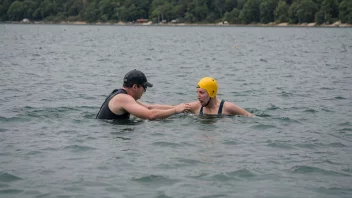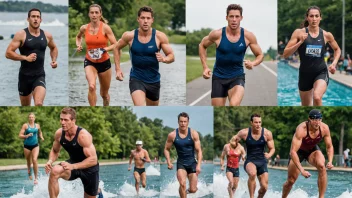Engaging in water sports can be an exhilarating experience, from the thrill of surfing to the precision of rowing. However, mastering these activities often requires more than just passion; it demands skill, technique, and often, guidance from a seasoned coach. In this article, we explore the benefits of using a coach for skill development in water sports and how their expertise can significantly enhance performance while ensuring safety.
First and foremost, a coach brings a wealth of knowledge that can be crucial for beginners and experienced athletes alike. They understand the nuances of each sport, from the mechanics of a perfect stroke in swimming to the right posture in paddleboarding. A coach can provide personalized feedback, helping athletes identify their strengths and weaknesses. This tailored approach means that athletes can focus on specific areas that require improvement, leading to more efficient learning.
Moreover, safety is a paramount concern in water sports. Coaches are trained to recognize potential hazards and can teach athletes how to navigate them. For example, in surfing, a coach can instruct on wave patterns and currents, which are vital for both performance and safety. By emphasizing safety protocols, coaches ensure that athletes are not only skilled but also prepared to handle challenging conditions.
Another significant advantage of working with a coach is the motivational aspect they bring. Training in water sports can be physically demanding and mentally taxing. A coach acts as a source of encouragement, pushing athletes to reach their full potential while keeping them accountable. This support can be particularly beneficial during tough training sessions or when athletes face plateaus in their development.
In addition to motivation, coaches often have access to the latest advancements in training techniques and technology. They can introduce athletes to innovative drills, specialized equipment, and analytical tools that enhance training outcomes. Using video analysis, for example, a coach can help an athlete visualize their performance, making it easier to implement necessary adjustments.
Furthermore, coaches foster a sense of community among athletes. Training with a coach often involves group sessions, creating opportunities for camaraderie and shared learning experiences. This social aspect can make training more enjoyable and less isolating, encouraging athletes to stick with their sport long-term.
In conclusion, the benefits of using a coach for skill development in water sports are manifold. From personalized feedback and safety education to motivation and access to advanced training techniques, coaches play a vital role in helping athletes improve their performance. Whether you are just starting out or looking to refine your skills, partnering with a knowledgeable coach can unlock your potential and elevate your water sports experience to new heights.






